[ad_1]
CNN
—
Donald Trump recently delivered the news to Rep. Matt Rosendale: He wouldn’t win the former president’s coveted endorsement if he runs in the GOP primary for the US Senate seat in Montana, according to a Trump ally, a decision with major implications in the high-stakes battle for control of the Senate.
In West Virginia, Trump privately suggested to Rep. Alex Mooney that he is unlikely to back him in the Senate GOP primary over Gov. Jim Justice, the candidate backed by Republican leaders, in part because of his loyalty to the West Virginia governor, something the House conservative confirmed to CNN after meeting with Trump twice and seeking his endorsement.
The twin developments will be welcome news for GOP leaders, who have been carefully maneuvering for months to try to keep Trump from undermining their efforts to prop up their preferred candidates in the nation’s most pivotal Senate races. Their goal: Intervene in GOP primaries to pick candidates they believe can win in the general elections and keep Trump on the same page – all in a bid to avoid the 2022 debacle when Trump-endorsed candidates collapsed in the general election and cemented Democratic control of the Senate.
And despite his legal woes, including the possibility of facing a third criminal indictment, Trump’s sway among hardcore GOP voters is enough to scramble Republican congressional primaries simply by offering up his endorsement. Even his allies are uncertain if the former president will stay in line with Senate GOP leaders.
“There are a lot of ways for this to go south,” said Sen. Lindsey Graham, a South Carolina Republican who frequently talks and golfs with the former president, and is eager to avoid the pitfalls of 2022.
Senior Republicans believe they can stay aligned with Trump in part because they now have a common foe: The Club for Growth, an anti-tax group whose leader has sparred with the former president and is raising millions to help Mooney and could potentially back Rosendale as well. Plus Trump himself is preoccupied with his own White House bid and doesn’t want to alienate key blocs of conservative voters by engaging too deeply in Republican primaries – so he is unlikely to be as active in Senate races as he was in 2022, his advisers say.
Montana Sen. Steve Daines, the head of the National Republican Senatorial Committee and the first member of his party’s leadership to back Trump’s 2024 bid, has tried to keep the former president in the fold with regular briefings on candidates and the party committee’s strategy, shifting tactics from the last cycle when the NRSC – under different leadership – steered clear of engaging in GOP-vs.-GOP contests.
“I don’t,” Daines said bluntly when asked if he believes Trump would support Mooney or Rosendale. “I speak with President Trump frequently, and he wants to win in November ’24 … with candidates who will win.”
But as he works to woo Trump, Daines is facing a rift with the Club for Growth, which is now sharply criticizing his handling of the party committee after he privately met with the group in Florida in the spring and made comments to try to smooth things over with his skeptics after the two groups have sparred bitterly over Senate candidate recruitment in past cycles.
“I hope we can continue to change the direction at the NRSC,” Daines told the group in March, according to a video clip of his remarks obtained by CNN. “It’s not gonna happen in one election cycle, it won’t. But I hope we can demonstrate that if we do apply some principles here – conservative principles, then we indeed can have better outcomes.”
The Club for Growth now plans to go head-to-head with the NRSC over candidates they believe are insufficiently conservative on fiscal issues, even as GOP leaders are focused on finding the most electable Republican, a battle Democrats hope could bolster their uphill climb to keep control of the chamber.
“I know that Steve Daines and his team are really focused on winning and realize that those prospects are enhanced if we can consolidate behind a candidate,” said Senate GOP Whip John Thune of South Dakota.
The 2024 map heavily favors the GOP – with 23 seats held by Democrats in contention and just 11 for Republicans – and several of those in states Trump carried, including Ohio, West Virginia and Montana. But in all three of those states, Republicans face messy primaries that could help Democrats. In Ohio, Republican leaders have yet to pick sides, arguing that they have three primary candidates who can knock off Democratic Sen. Sherrod Brown, assuming the primary doesn’t badly damage them against the incumbent.
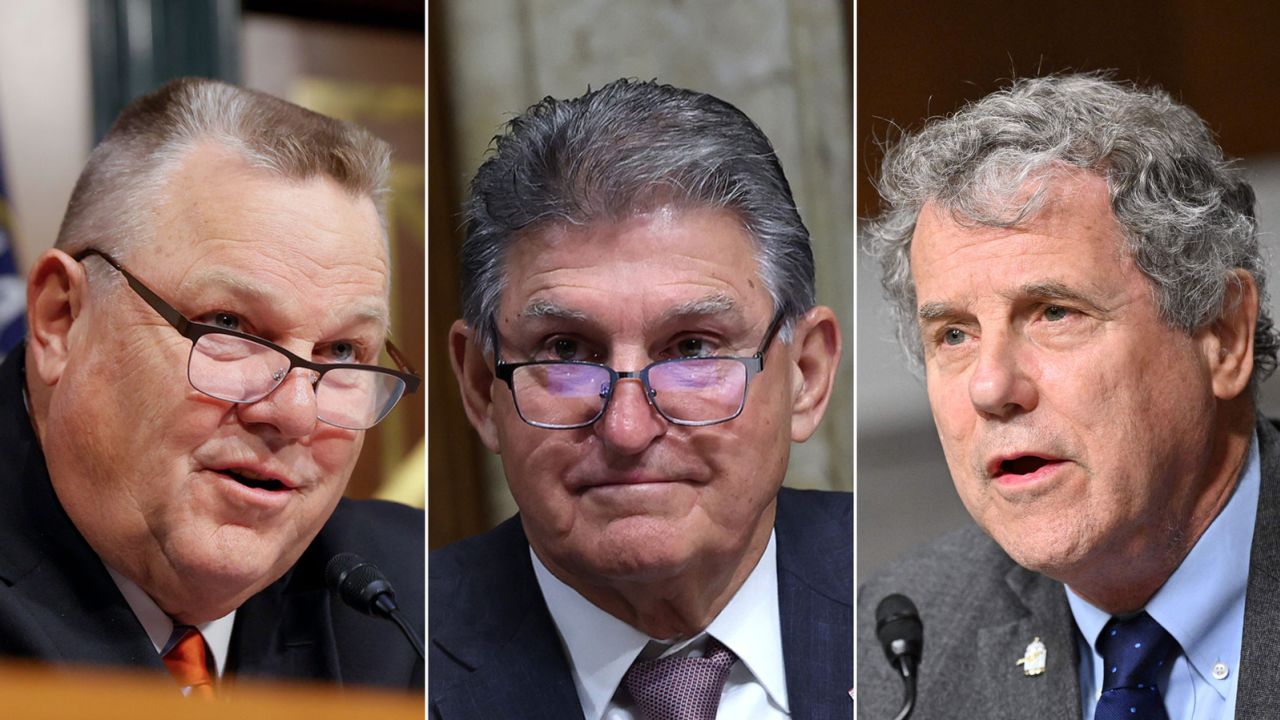
In Montana and West Virginia, the divisions are far starker.
Rosendale has already begun telling his Republican colleagues in the House and Senate that he plans to launch a Senate bid to challenge Democratic Sen. Jon Tester in Montana next year, sources familiar with those conversations told CNN.
But his bid would put him at odds with many Republicans in the Senate, who are nervous about his potential candidacy since he lost to Tester six years ago. If he were to run in the primary, Rosendale would pose a serious threat to Tim Sheehy, a former Navy SEAL whom Daines and Republican senators are lining up to support.
But Rosendale, who received Trump’s endorsement last cycle when running for reelection to the House, hasn’t endorsed Trump’s 2024 presidential bid and has publicly said he doesn’t have plans to endorse a presidential candidate anytime soon – a move that influenced the former president’s decision not to support him, a source familiar with the situation said.
The Club for Growth, meanwhile, is considering backing Rosendale if he formally enters the race, a decision that could bolster his chances given the big bucks the group often spends on attack ads.
Rosendale has spoken with Club for Growth President David McIntosh on a few separate occasions about his potential candidacy, a source with knowledge of their calls told CNN, though the group has some concerns about his fundraising prowess.
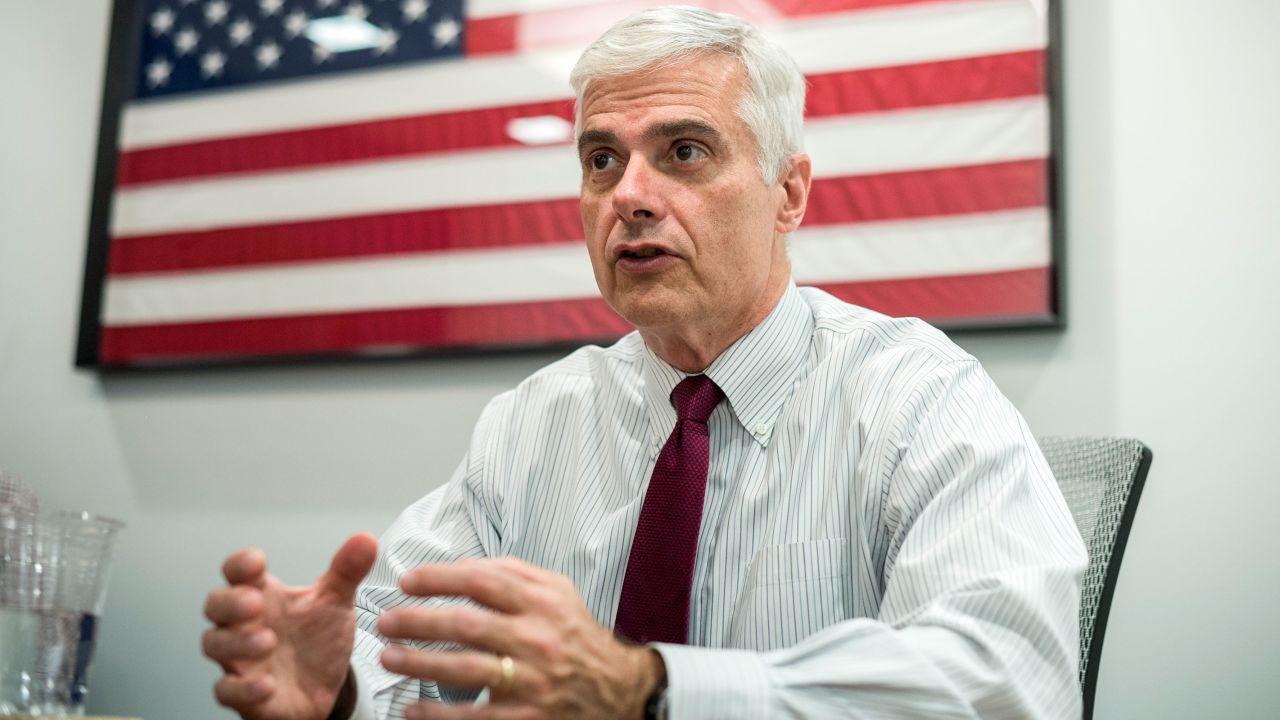
Rosendale declined to comment on his conversation with the Club for Growth or with Trump. And when asked about Trump informing him that he wouldn’t give him his backing, Rosendale grinned and didn’t want to address it (The Montana Republican’s office later denied that the former president has explicitly informed him that he won’t win his endorsement in a Senate bid, though other sources familiar with the call say the message was delivered).
“What I’ve said – been very consistent – is that we got plenty of time,” Rosendale, a member of the hard-right House Freedom Caucus, said of his Senate deliberations. “That election is not until next year. What we do know is that Jon Tester does not represent the people of Montana, and he will be replaced, and they are forming their opinions right now of who they’re going to replace him with.”
Tester, who is running for a fourth term in a state Trump won by 17 points in 2020, claimed that Rosendale could be a tougher candidate in the general election than Sheehy, whom he called “an unknown quantity.”
“There’s something to be said about experience,” he said of Rosendale, while adding: “I don’t want either one of them.”
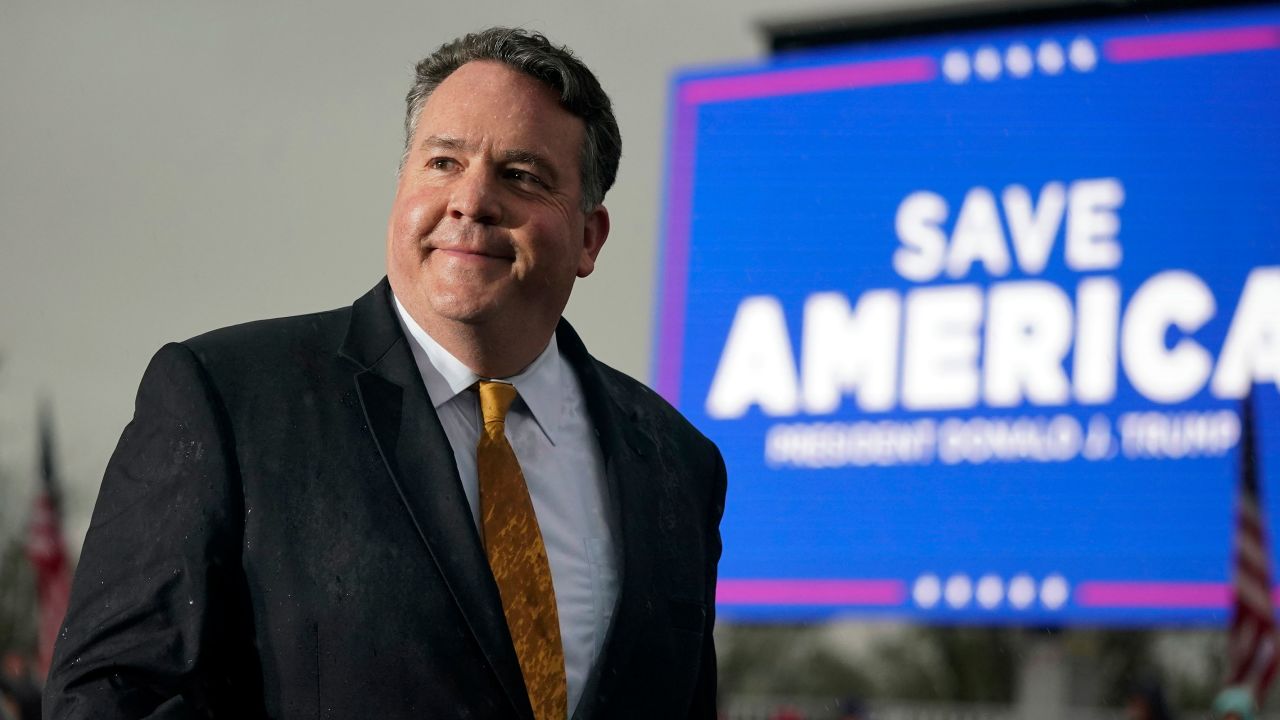
Like Rosendale, Mooney won Trump’s endorsement in his House race, in large part because the West Virginia Republican opposed President Joe Biden’s infrastructure law that was backed by both his GOP opponent and Justice himself.
Mooney told CNN on Monday that he visited Trump twice seeking his endorsement and he believes it’s “pretty clear” he’s unlikely to win his backing – though he said the former president “never said he would or wouldn’t” back him. The reason for his hesitance in backing Mooney: Trump still values the fact that Justice switched parties and became a Republican during a Trump rally in 2017, according to the congressman.
“He more just impressed upon me that Jim Justice party switched for Trump at a rally, and that he feels some loyalty to Mr. Justice for that purpose,” Mooney said.
Mooney, who is also a member of the Freedom Caucus, added that he is still seeking the former president’s endorsement. “I still make the case I’m more in line with Trump, I’m much more in line than my opponent.”
Just last week, the Club for Growth announced raising $13.6 million for Mooney’s Senate bid, pitting the group against the Senate Leadership Fund, the deep-pocketed super PAC allied with Senate Republican Leader Mitch McConnell and the NRSC itself.
“The more West Virginia voters learn about Jim Justice, Mitch McConnell’s chosen candidate, the clearer it becomes that he is a big government RINO,” McIntosh said, referring to Justice as a “Republican in name only.”
Roman Stauffer, the campaign manager for Justice, pushed back and said that the governor has a “strong record” on taxes and “conservative results” in West Virginia.
“The only RINO in this race is the one taking $13.5 million from the Trump-hating Club for NO Growth,” Stauffer said.
Trump personally likes Justice, and believes he is the stronger candidate, a Trump official told CNN. He also thinks Justice has a better fundraising infrastructure in place to succeed in the 2024 race, though he has yet to offer Justice his endorsement.
Mooney also said Trump was positive toward him in his recent discussions.
“So if he’s not gonna endorse me, then my hope is that he at least just stays neutral,” Mooney said of Trump, while adding: “I’m going to make the case that I’m the only conservative running because I am the only conservative running.”
Whether they will be facing an incumbent Democrat also remains to be seen. Sen. Joe Manchin, the veteran West Virginia Democrat, says he will make a decision on whether to run for reelection later this year. If he does run, he’ll face an uphill battle to keep the seat in a state that has grown sharply more Republican and that Trump carried by nearly 40 points last time. If he hangs it up, GOP chances to flip the seat will rise substantially.
Manchin denied to CNN that he was waiting to see how Justice performed as a candidate before deciding whether to run again, something many Democrats suspect is part of the calculation.
“Whoever my opponent would be, whatever my decision is gonna be, none of that makes a decision,” he said. “I’ll make it in the fall sometime.”
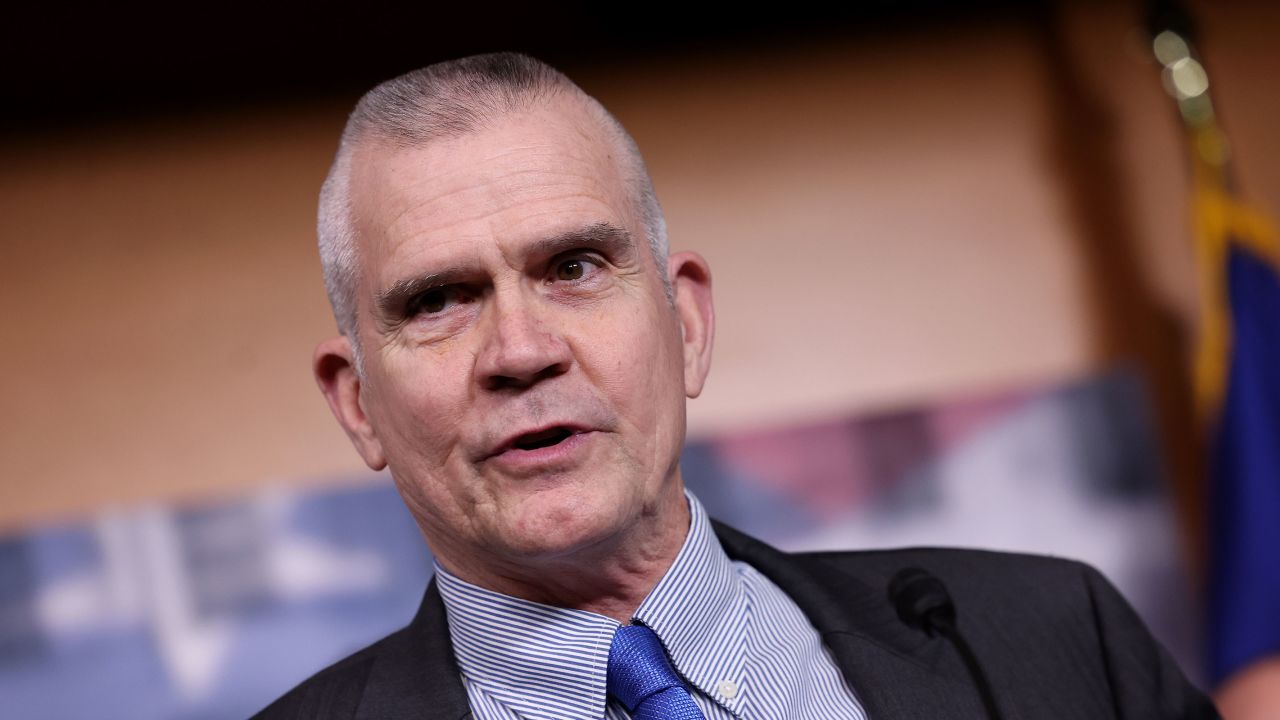
How Trump approaches these races could be influenced by his tense relationship with the Club for Growth – a breakdown in ties between two former allies.
Indeed, McIntosh periodically joined Trump on flights on Air Force One while he was in office, and would frequently meet with the former president at Mar-a-Lago to discuss GOP endorsements.
But their relationship turned sour quickly during the 2022 midterm election cycle, when the two began backing different candidates in critical battleground states such as Ohio and Pennsylvania – something Trump viewed as disloyal.
The Club’s decision to pump money into races challenging Trump-endorsed candidates – such as 2022 Ohio Senate candidate JD Vance, who went on to win his race – was a move Trump saw as a personal attack.
Their relationship has furthered deteriorated this cycle. While the Club is not planning on directly attacking Trump’s 2024 presidential campaign, the group notably did not invite the former president to attend its annual donor retreat in March, hosted in Trump’s backyard at The Breakers in Palm Beach, Florida.
McIntosh has also made clear that he supports other Republican presidential candidates taking on Trump. “The party should be open to another candidate,” he told reporters earlier this year. And an outside group with ties to the Club and McIntosh, Win it Back PAC, launched last month with the chief goal of targeting Trump in 2024.
Trump, meanwhile, has not shied away from publicly slamming the Club. He’s frequently railed against the fiscal conservative group on social media, including attacking it as “Club For NO Growth” on Truth Social and recounting the breakdown of his relationship with McIntosh.
The former president has at times been so fixated on his disdain of the Club, and candidates who have received their endorsement, that he’s brought it up in conversations with lawmakers.
Shortly before Vance and Trump announced their endorsements of Rep. Jim Banks in February, who is running for the US Senate in Indiana, the former president called Vance to ask him about his opinion.
“He just said, ‘What do you think about Jim Banks?’ And I said, ‘I think Jim makes a great guy, and I’m going to endorse him,’” Vance told CNN about the call.
A source familiar with that conversation told CNN that Trump brought up Banks’ ties to the Club during their call, noting that the group’s endorsement of the congressman was a concern.
“He certainly is frustrated by the fact that Club for Growth is opposing him, not just in this race but a lot of these primaries. I think he’s still frustrated by their posture in 2022,” Vance said. “Look, he doesn’t like Club for Growth, but it’s sort of a well-known thing.”
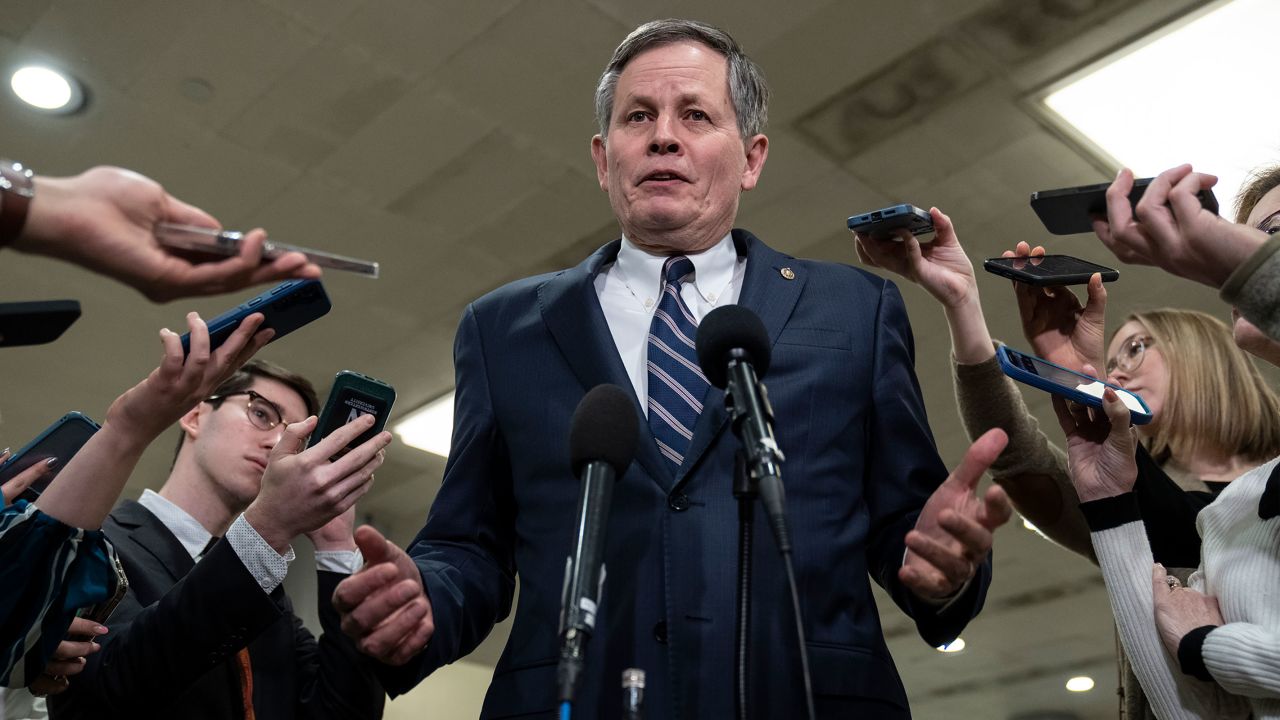
Daines has also found himself in the crosshairs of the Trump-vs.-McIntosh feud. While his decision to endorse Trump early in the cycle was viewed as a politically and financially beneficial move for both Daines and Trump, it also put the NRSC chairman in the Club’s direct line of fire.
The group says it has issues with Daines’ early recruits.
“We’d hoped Sen. Daines would turn NRSC around – and stop just recruiting self-funder moderate squishes who have a long record of losing Senate seats – but unfortunately he’s followed McConnell’s lead,” McIntosh told CNN.
Daines declined to comment on the Club for Growth’s criticism.
But a national GOP strategist, who asked for anonymity to speak candidly, was unsparing in his criticism.
“The Trump-hating Club for Chinese Growth specializes in recruiting unelectable losers,” the strategist said. “Rosendale and Mooney are bought and paid for by the group spending millions trashing Trump, so it’s not surprising he doesn’t want to back them.”
Mooney, in the interview on Monday, said he is steering clear of the feud between the Club for Growth and Trump, though he believes the group will give him a big boost in his campaign.
“Knowing that the Club for Growth is there, ready to back me up – it is important,” Mooney said, pointing to the GOP-leadership aligned outside groups helping Justice.
In March, Daines attended the Florida retreat hosted by the Club for Growth – and faced some sharp questions from the audience.
In the video clip obtained by CNN, Daines was speaking onstage at the group’s annual event when he was asked by an audience member about the NRSC’s past history of opposing some conservative candidates backed by the Club. The questioner pressed Daines about the NRSC trying to elect what he described as McConnell loyalists.
Daines said that the committee would try to avoid “head-on” collisions with outside groups.
“We’re starting to turn the ship a bit, and it is an incredibly trying time in American politics today with the undercurrents going on in so many ways,” Daines told the Florida audience. “And where we can try to minimize head-on collisions between great outside conservative groups, which I am a friend of many, many of them, versus some of the more establishment groups we work with, it’s going to take all hands on deck right now to get candidates across the finish line.”
The audience member also asked Daines if the NRSC would oppose a candidate like Rosendale if he were to run for Senate, noting that Rosendale has been supported by the Club in the past. Daines didn’t specifically address that aspect of their question.
This story has been updated with additional developments.
[ad_2]
